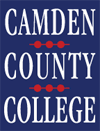
Media Bias
|
If your CCC Library Card Barcode is not working, please complete the application. |
Quick Links
Semester Hours
| Monday to Thursday |
8:30am - 8:30pm |
| Friday | 8:30am - 4:30 pm |
| Saturday | 10:00am - 4:00pm |
| Sunday | CLOSED |
For holiday and break hours (including summer schedule), click here
|
What is Media Bias? Media bias is "a way of reporting on a factual news story that is designed to sway a reader toward a specific conclusion." "Media bias refers to the media exhibiting an unjustifiable favoritism as they cover the news. When the media transmit biased news reports, those reports present viewers with an inaccurate, unbalanced, and/or unfair view of the world around them." |
|
How to Identify Media Bias Is the information news, opinion, an advertisement? Are the sources cited and why should you believe them? Is the source associated with a political party or special interest group? What’s the evidence and how was it vetted? Is the source a document, a witness, hearsay/speculation? Is the main point of the piece proven by the evidence or did the sources provided justify the conclusion or main point of the story? Was there an aspect or point that was not covered or unclear that you are left wondering about? From what point of view is the information presented? Does the author/reporter/organization use stereotypes? Does the headline match the story? |
|
Examples of Bias Examples of Headlines and Excerpts for Same Story...See the Bias? A news story about 501(c)(4) organizations that are no longer required to identify tax donors to the IRS.
Hockey game coverage headlines from the two towns of the opposing teams.
Excerpts of two different accounts of the same hockey game.
An article about a judge permitting one additional accuser to testify in the Bill Cosby trial.
Headline for two articles discussing the topic of Jewish women studying the Talmud.
|
| Types of Bias
Media Bias
Personal Bias
|